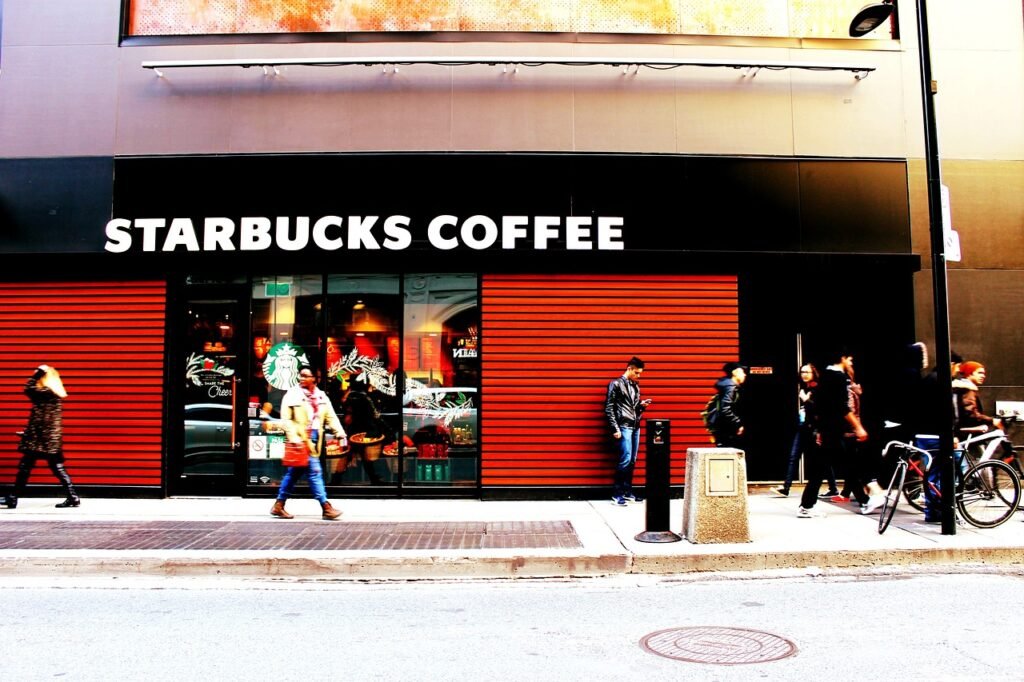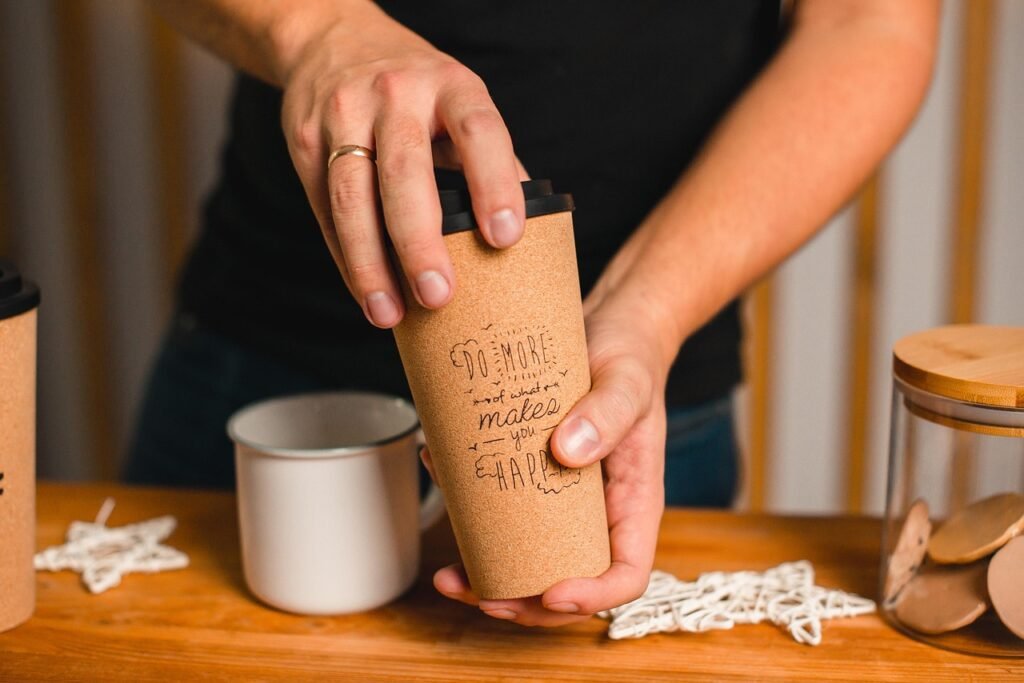How to Order Coffee in Arabic at a Local Café in 2026
Traveling to an Arabic-speaking country is one of the best ways to practice the language. Daily life offers many opportunities to use what you know. One of the simplest, most enjoyable moments is ordering a cup of coffee. You step into a small café, hear the soft hum of conversations, smell the rich aroma of fresh coffee beans, and realize this is your chance to speak Arabic in a real situation.
Many Arabic learners hesitate at this moment. They know some words but worry about pronunciation or grammar. They fear they will sound strange or not be understood. This hesitation often makes them default to English or stay silent and just point to the menu. If that has happened to you, you are not alone.
Ordering coffee might seem like a small task, but it carries great value for your language journey. It gives you a chance to practice greetings, polite expressions, and basic vocabulary. It allows you to interact with locals in a natural setting. It helps you break the mental barrier of using Arabic outside the classroom.
Cafés in the Arab world are important social spaces. They are not just places to grab a drink and leave. They are places where people meet friends, discuss news, and spend time together. Understanding how to act and speak in this environment helps you feel part of the culture. It also shows respect for local customs.
This article will guide you step by step through the process of ordering coffee in Arabic. We will look at greetings, common words, and key phrases. We will cover how to say what kind of coffee you want and how to pay politely. We will also talk about cultural tips that make your interaction smoother.
Learning to order coffee is not about memorizing a script. It is about building confidence. Once you master this small but meaningful exchange, you will find it easier to order food, buy tickets, and start short conversations. Each success builds your motivation to learn more.
I have met many students who told me their first Arabic conversation happened in a café. They still remember that moment clearly. Some made mistakes, but they laughed, tried again, and were proud they communicated. That moment became a turning point.
Think about what will happen when you can walk into a café, greet the staff, order exactly what you want, and leave with a smile because you did it in Arabic. That is a powerful feeling. This article is here to help you reach that moment.

Part 1 – Key Greetings and Phrases for Café Situations
The first step to ordering coffee in Arabic is learning how to greet the staff. Greetings are a big part of Arab culture. They set the tone for the whole interaction. Even if you only say a few words, you show respect and friendliness, which makes people more open to helping you.
Start with a simple “hello.” In many countries, you can use السلام عليكم (as-salāmu ʿalaykum). It means “peace be upon you.” It is one of the most common greetings and works in almost any situation. The usual reply is وعليكم السلام (wa ʿalaykum as-salām), which means “and peace be upon you too.”
If you want something shorter, you can say مرحبا (marḥabā) or أهلا (ahlan), both mean “hi” or “welcome.” If you want to sound extra polite, combine them: أهلا وسهلا (ahlan wa-sahlan).
Time of day greetings also work well.
- صباح الخير (ṣabāḥ al-khayr) means “good morning.”
- مساء الخير (masāʾ al-khayr) means “good evening.”
The staff will usually reply with صباح النور (ṣabāḥ an-nūr – morning of light) or مساء النور (masāʾ an-nūr – evening of light). These responses are friendly and warm.
Once you greet them, it is polite to ask how they are. You can say كيف حالك؟ (kayfa ḥāluka? for a man / kayfa ḥāluki? for a woman) which means “how are you?” A shorter and common version is simply كيفك؟ (keefak? for a man / keefik? for a woman).
Most likely they will answer الحمد لله (al-ḥamdu lillāh), which means “praise be to God.” This is the standard way to say “I’m fine.”
After this short exchange, you can move on to ordering. In Arabic, you often start by saying من فضلك (min faḍlik for a man / min faḍlikī for a woman). It means “please.” Use it before asking for anything.
The most basic phrase is أريد (urīdu), which means “I want.” For example:
- أريد قهوة (urīdu qahwa) – “I want coffee.”
If you want to sound a little softer, you can say هل يمكن أن أحصل على…؟ (hal yumkin an aḥṣul ʿalā…?) which means “Can I have…?” Example:
- هل يمكن أن أحصل على قهوة؟ (hal yumkin an aḥṣul ʿalā qahwa?) – “Can I have a coffee?”
When you are ready to pay, you can say الحساب من فضلك (al-ḥisāb min faḍlik) which means “the bill, please.”
Politeness is key. Many Arabic speakers appreciate when foreigners use شكرا (shukran – thank you) and عفوا (ʿafwan – you’re welcome). These two words alone can make the exchange feel warmer.
You can also add small cultural touches to make the conversation natural. Smile when you greet the staff. Speak slowly and clearly. If you are not sure of the right word, do not panic. Point to the item on the menu while saying the word you know. Many café workers are patient and happy to help.
Practice these phrases before you travel. Read them out loud several times until they feel natural. Record yourself and compare your pronunciation to a native speaker online. Try to focus on clear sounds. Even if your accent is not perfect, effort matters more than perfection.
Here is a short dialogue example you can practice:
You: السلام عليكم
Barista: وعليكم السلام
You: أريد قهوة من فضلك
Barista: حجم صغير أو كبير؟
You: صغير شكرا
Barista: تفضل
You: شكرا
This short exchange already covers greeting, ordering, answering a question, and thanking. Once you feel comfortable with this, you can add more details like asking for milk, sugar, or a specific type of coffee.
Think about what you usually order. If you like black coffee, learn قهوة سادة (qahwa sāda). If you like it with milk, learn قهوة بالحليب (qahwa bil-ḥalīb). The more specific you can be, the smoother your interaction will go.

Part 2 – Types of Coffee and Café Culture in the Arab World
Coffee has a deep history in the Arab world. It is more than a drink. It is a tradition, a symbol of hospitality, and a way to bring people together. When you visit a café, knowing the different types of coffee will help you order with confidence and enjoy the experience.
Start with قهوة عربية (qahwa ʿarabiyya), often called Arabic coffee. This is a traditional drink served in many Gulf countries. It is usually made with lightly roasted beans and flavored with cardamom. Sometimes saffron or cloves are added. It is served in small cups without sugar. The taste is light and slightly bitter. If you are offered this coffee in a café or at someone’s home, it is polite to accept at least one cup.
In the Levant – countries like Lebanon, Syria, and Jordan – you will find قهوة تركية (qahwa turkiyya), or Turkish coffee. This coffee is strong and rich. It is brewed slowly in a small pot called ركوة (rakwa) and poured into small cups. You can choose how much sugar you want:
- سادة (sāda) – no sugar
- وسط (wasaṭ) – medium sugar
- حلوة (ḥilwa) – sweet
The sugar is added while brewing, so you must say your preference before the coffee is made.
In North Africa, especially Morocco, Tunisia, and Algeria, you will find قهوة نص نص (qahwa naṣ naṣ), which is half coffee, half milk. In Egypt, you might hear قهوة مظبوط (qahwa maẓbūṭ), which means perfectly balanced, often referring to the sugar level.
Modern cafés also serve espresso, cappuccino, and latte just like in other countries, but knowing how to say them in Arabic makes the experience more fun. For example:
- Espresso – إسبريسو (isbrīsū)
- Cappuccino – كابتشينو (kābtshīnū)
- Latte – لاتيه (lātēh)
Besides drinks, the café itself has a special role. In many Arab cities, cafés are social hubs. People come to talk, read the newspaper, play backgammon, or watch football matches. Some cafés are quiet, perfect for studying or working. Others are lively, full of conversation and music.
In traditional cafés, you might see older men drinking coffee or tea for hours, smoking shisha, and discussing politics. In modern coffee shops, you will see young people with laptops, students meeting to study, or friends taking photos of their drinks.
Understanding the rhythm of the café helps you blend in. In some places, you order at the counter and pay right away. In others, you sit down, order from a server, and pay when you are ready to leave. Watch what the locals do and follow their lead.
When you sit, it is polite to greet the waiter again, maybe with مرحبا or السلام عليكم. If you want water with your coffee, you can say ماء من فضلك (māʾ min faḍlik – water please). If you need sugar, you can ask عندي سكر؟ (ʿindī sukkar? – do you have sugar?).
If the café is busy, do not be surprised if the service is slower than you expect. Coffee in the Arab world is often enjoyed slowly, not rushed. Take this time to observe your surroundings. Listen to the language, notice how people interact, and pick up new words.
One more thing to keep in mind: tipping. In many countries, rounding up the bill or leaving a small amount is enough. You can say احتفظ بالباقي (iḥtafiẓ bil-bāqī – keep the change) when you hand over the money.
Experiencing café culture is a chance to practice more than just ordering. You can try short conversations. Ask كيف القهوة؟ (kayfa al-qahwa? – how is the coffee?) or هل عندكم…؟ (hal ʿindakum…? – do you have…?). Small interactions build your confidence.
Each region has its own style, but the common point is that coffee is connected to hospitality and connection. When you order politely, greet with a smile, and show interest in the local way of doing things, you get more than coffee – you get a cultural experience.

Part 3 – Step-by-Step Guide to Ordering Coffee in Arabic
Knowing greetings and coffee types is helpful, but putting it all together in a real situation is the real goal. In this section, we will walk through the full process of ordering coffee in Arabic. You will see step-by-step examples you can practice at home.
Step 1 – Entering the Café
When you walk in, greet the staff. If you pass someone on your way in, a simple السلام عليكم works well. If you are entering a modern café, you can also just say مرحبا or أهلا.
If it is your first time, look at the menu. Many cafés have menus in Arabic and English, but even if you see English words, try to say your order in Arabic. This shows effort and helps you practice.
Step 2 – Greeting and Small Talk
When you are ready, start with a short greeting. Here is a simple example:
You: السلام عليكم
Barista: وعليكم السلام
You: كيفك؟
Barista: الحمد لله، وأنت؟
You: بخير شكرا
This short exchange breaks the ice. You are no longer just a customer – you are a person having a small, friendly chat.
Step 3 – Making Your Order
Decide how polite and formal you want to sound. The easiest way is to use أريد (I want).
Example:
- أريد قهوة سادة من فضلك (urīdu qahwa sāda min faḍlik) – I want black coffee, please.
If you want to sound softer:
- هل يمكن أن أحصل على قهوة سادة؟ (hal yumkin an aḥṣul ʿalā qahwa sāda?) – Can I have black coffee?
If you are in a café with different sizes:
- أريد قهوة صغيرة (urīdu qahwa ṣaghīra) – I want a small coffee.
- أريد قهوة كبيرة (urīdu qahwa kabīra) – I want a large coffee.
If you want sugar, mention it when ordering:
- قهوة سادة – no sugar
- قهوة وسط – medium sugar
- قهوة حلوة – sweet
You can also specify milk:
- قهوة بالحليب (qahwa bil-ḥalīb) – coffee with milk
Step 4 – Answering Questions
Sometimes the barista will ask follow-up questions. Here are common ones:
Barista: حجم صغير أو كبير؟
(Small or large size?)
You: صغير من فضلك
(Small, please)
Barista: سكر؟
(Sugar?)
You: وسط من فضلك
(Medium sugar, please)
Barista: هنا أو سفري؟
(For here or to go?)
You: هنا
(Here)
or
You: سفري
(To go)
Step 5 – Receiving Your Coffee
When they hand you the coffee, it is polite to say شكرا (thank you). If you want to be extra polite, say شكرا جزيلا (thank you very much).
If you sit down to drink your coffee, enjoy the moment. This is your chance to listen to conversations around you. Notice the words people use. You might hear صحتين (ṣaḥtayn – “to your health”) said to someone eating or drinking. You can reply with على قلبك (ʿalā qalbak – “to your heart”).
Step 6 – Asking for the Bill
When you are done, call the waiter or go to the counter. Say:
- الحساب من فضلك (al-ḥisāb min faḍlik – the bill, please)
If you want to pay by card, you can ask:
- هل أستطيع الدفع بالبطاقة؟ (hal astaṭīʿ ad-dafʿ bil-biṭāqa? – can I pay by card?)
When you pay, you can say احتفظ بالباقي (keep the change) if you want to leave a tip.
Full Dialogue Example
Here is a full example you can practice:
You: السلام عليكم
Barista: وعليكم السلام
You: كيفك؟
Barista: الحمد لله، وأنت؟
You: بخير شكرا. أريد قهوة تركية وسط من فضلك
Barista: هنا أو سفري؟
You: هنا
Barista: تفضل
You: شكرا
After finishing:
You: الحساب من فضلك
Barista: عشرة ريالات
You: تفضل. احتفظ بالباقي
Barista: شكرا
You: شكرا
This example covers greeting, ordering, sugar level, where you will drink, paying, and tipping. Practice this conversation out loud several times until it feels natural.
Practice Tips
- Speak slowly and clearly
- Focus on pronunciation of key words like قهوة (qahwa)
- Use your hands to point to the menu if needed
- Smile and keep eye contact
These small steps make the interaction smoother and give you more confidence to try again.

Part 4 – Common Mistakes to Avoid and Cultural Tips
Learning how to order coffee in Arabic is exciting, but many learners make simple mistakes that can make the experience harder. Knowing these mistakes in advance will save you time and help you feel more comfortable.
Mistake 1 – Forgetting to Greet
In many Arab countries, greeting is important. Walking straight to the counter and saying only “coffee” can feel rude. Always start with السلام عليكم or مرحبا. A small greeting can change the whole interaction and make the staff more welcoming.
Mistake 2 – Speaking Too Fast
Learners often rush because they are nervous. This makes pronunciation unclear. Slow down. Take a breath before you speak. Say each word clearly. A slower sentence is easier to understand than a fast one with mistakes.
Mistake 3 – Using Only English
Many visitors switch to English if they feel stuck. This is natural but try to resist the urge. Even if you only know a few words, use them. Say قهوة instead of “coffee.” Say شكرا instead of “thank you.” Every small effort helps you learn and shows respect.
Mistake 4 – Forgetting Gender Forms
Arabic changes depending on whether you speak to a man or a woman. For example, “please” is من فضلك when talking to a man but من فضلكِ when talking to a woman. Practice both forms before you travel.
Mistake 5 – Not Saying Sugar Preference
In some countries, sugar is added while making the coffee. If you forget to say سادة (no sugar) or وسط (medium sugar), you might get a cup that is too sweet or too bitter. Learn these words well.
Mistake 6 – Panicking When You Don’t Understand
Sometimes the barista will ask a question you don’t catch. Don’t panic. You can say مرة ثانية من فضلك (marra thāniya min faḍlik – one more time, please). Or you can smile and point to what you want. Most people are patient when they see you are trying.
Cultural Tips
Ordering coffee is not just about language. Culture plays a big role. Here are tips that will help you fit in better.
Be Patient
In many Arab cafés, coffee is made slowly. It is part of the experience. Don’t expect fast service like in some Western coffee chains. Take your time. Enjoy the smell and the atmosphere.
Observe the Locals
Before ordering, look at what others are doing. Do they order at the counter or sit and wait for a waiter? Follow their lead. This small step will make you feel less out of place.
Respect Personal Space
In busy cafés, staff might be rushing. Stand to the side and wait your turn. Avoid cutting in front of someone.
Show Gratitude
Say شكرا with a smile when you get your drink. This small word creates a friendly connection.
Try Something New
Use the café visit as a chance to explore. If you see a type of coffee you’ve never tried, ask about it. You can say ما هذه القهوة؟ (mā hādhihi al-qahwa? – what is this coffee?). This is a good way to learn new words and try new flavors.
Respect Local Customs
In some places, public spaces are more traditional. Keep your voice low. Avoid sitting in a section reserved for families if you are alone. If you are unsure, ask the staff.
Learn a Few Extra Phrases
You can make the interaction more natural by learning casual words people use every day:
- تمام (tamām) – okay
- ممتاز (mumtāz) – excellent
- يلا (yalla) – let’s go
These small words make you sound more natural and help you connect with people.
Why These Details Matter
Ordering coffee may seem simple, but it is a chance to build cultural awareness. When you greet politely, speak clearly, and show patience, you are not just buying coffee – you are showing respect for the language and the people. This respect often comes back to you in the form of friendliness and better service.
Mistakes will still happen, and that’s okay. Locals usually appreciate the effort, even if your grammar is not perfect. Each interaction is practice, and practice is how you improve.

Practical Advice
Ordering coffee in Arabic might seem like a small task, but it carries a lot of value for language learners. It is one of the easiest ways to use what you have studied in a real situation. It teaches you to greet politely, speak clearly, and interact with locals in a natural way.
If you follow the steps in this guide, you will be ready to walk into a café, greet the staff, order what you want, and leave with confidence. You will not just get coffee – you will get an experience that makes you proud and motivates you to keep learning.
Practical Advice for Learners
- Practice Out Loud – Say the words until they feel natural. Record yourself and compare your pronunciation to a native speaker.
- Start Small – Even if you only say “hello” and “coffee,” that is progress. Each visit to a café is a chance to say more.
- Accept Mistakes – You will make them. Laugh, correct yourself, and try again. Locals usually respect learners who put in the effort.
- Listen More – Pay attention to how others order. You will hear new words and phrases that you can add to your vocabulary.
- Be Patient – Good coffee takes time, and so does learning a language. Each small step builds confidence.
Your goal is not to sound perfect. Your goal is to communicate and enjoy the process. Every successful order is proof that you can use Arabic outside the classroom.
About the Author
My name is Ramdani Mohamed, and I have spent years teaching Arabic to students from around the world. I started Ramdani Arabic Academy to help learners connect with the Arabic language and culture in a practical way. I believe that language learning should go beyond textbooks. It should be part of daily life – at the café, the market, and in conversation with friends.
I have seen hundreds of students experience their first Arabic conversation in a café. I have seen their nervous smiles when they try, and their joy when they succeed. That is why I wrote this guide. I want you to have that moment too.
About Ramdani Arabic Academy
Ramdani Arabic Academy is an online platform that offers lessons, courses, and articles for Arabic learners everywhere. Whether you are a beginner learning your first words or an advanced student polishing your skills, our goal is to give you tools you can use in real life.
We focus on:
- Practical lessons you can apply immediately
- Cultural insights to help you understand the Arab world
- Step-by-step guidance to build your confidence
- Clear explanations and real examples
If you enjoyed this article and want to go deeper, visit our website. You will find free resources, interactive lessons, and full courses that cover speaking, listening, reading, and writing. You can learn at your own pace, from anywhere in the world.
Final Words
Learning Arabic is a journey, and every small step counts. Your first café order, your first “thank you,” your first short chat with a barista – these moments are milestones. Celebrate them.
You now have the greetings, the key phrases, and the cultural knowledge to order coffee like a local. The next step is up to you. Walk into that café, smile, and say السلام عليكم with confidence. Your coffee will taste even better when you order it in Arabic.








شكرًا على الموضوع والمعلومات القيمة التي قدمتها